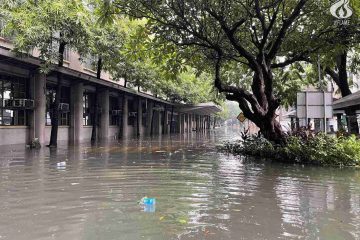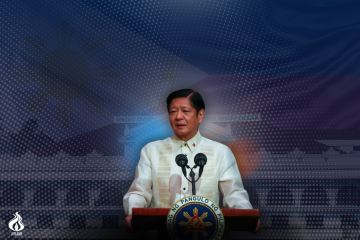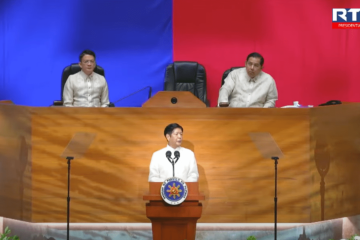by KAREN RENEE S. NOGOY
Finding peace in Mindanao remains a continuous struggle despite the formation of the Bangsamoro Autonomous Region of Muslim Mindanao (BARMM), a political science instructor said Thursday in a webinar.
“The process towards the transition to BARMM faces major constitutional, social, and legal challenges,” UST Department of Political Science Amr Solon Sison said.
The BARMM was formed in 2019 to replace the Autonomous Region of Muslim Mindanao (ARMM) region as a result of several years of peace talks between the Philippine government and autonomist groups.
Sison cited the creation of the ARMM, which he also considered “ineffective” in attaining peace.
He emphasized that the attainment for ‘lasting peace’ in Mindanao became ‘elusive’ due to the homestead programs, identity politics, and most especially, the issue with ancestral lands.
“One thing that really stings among the Moros is with the issue of the ancestral domains, [which] in fact, is really a major problem for rebellion because it all boils down to land,” stressed Sison.
Since the Moros did not have a land title system before, all the non-titled lands were considered as government lands, he added.
The government attempted to resolve these issues by establishing a peace agreement, but the peace accord like the 1976 Tripoli Agreement left out the issue of land rights which could attain lasting peace, said Sison.
“[The Philippine government] really started to push the Moros, who did not really see themselves as Filipinos at that time, to be integrated [into] the Filipino structure [and] identity,” he said.
The formation of the MNLF is the reaction of the Moros to the imposed programs of the government, according to Sison.
Challenge of Islamophobia
Meanwhile, Abdolmajeed Moballeghi of the Institute for Humanities and Cultural Studies in Tehran, Iran considered ‘dialogue’ as the most effective and historically proven method to reduce ignorance that leads to the formation of Islamophobia.
Islamophobia is the fear against Islam and Muslims which constitutes racism and discrimination.
Moballeghi said that the problem of Islamophobia is rooted in the opposition of religious lifestyles and the fear of the ‘other’ which is associated with ignorance.
“By focusing on dialogue, we will give ourselves a big chance to understand each other and to go over that ignorance, which is the root of fear and Islamophobia,” he said.
Moballeghi said that this ignorance is manifested in the form of “ increased fear in the society,” in which the Western mass media is responsible as it contributes to the spread of ”collective and social fear” in societies.
“Mass media sometimes do not accurately reflect reality…[and] have tried to deny the historical, clear, obvious facts,” he said.
The webinar series titled “The Islamic World in the 21st Century” was spearheaded by the UST Department of Political Science in partnership with the Cultural Section of the Embassy of the Islamic Republic of Iran-Manila. F



